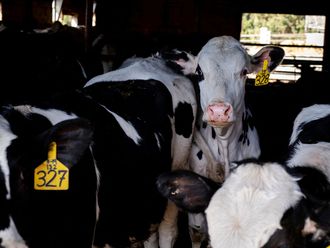Washington: Dozens of Americans of Arab and Indian descent are running for office in the midterm elections on November 4 driven by a motivation to serve the country that their forefathers embraced as their own.
The seats up for grabs include all 435 in the US House of Representatives; 36 in the US Senate; most of the state legislatures; and the job of governor in 36 states.
Of the more than two dozen Arab-American candidates, the most prominent are Charlie Crist (a Democrat running for Florida Governor), Darrell Eisa (a Republican running for re-election to the US House seat representing California), and Nick Rahall (a Democrat running for re-election to the US House seat representing West Virginia).
The Arab-American community is “increasingly politically engaged,” said Maya Berry, Executive Director of the Arab American Institute.
The 3.7-million-strong Arab-American community is concentrated in 12 states. “A majority of those states are places where we always have hotly contested campaigns, so [the Arab-American community’s] participation and electoral engagement is important,” said Berry.
She cited the example of Michigan, which has the highest number of Arab-Americans running for office: eight.
The Indian-American community, which is just shy of three million, has produced more than a dozen candidates.
Prominent races for the Indian-American community include South Carolina Governor Nikki Haley’s re-election campaign, Republican Neel Kashkari’s long-shot bid for governor of California, and two races in California — Democrat Ami Bera’s effort to retain his seat in the US House and Democrat Ro Khanna’s attempt to snatch fellow Democrat Mike Honda’s House seat.
Haley’s re-election pits an Indian-American against an Arab-American. Her challenger, Democrat Vincent Sheheen, is half-Lebanese and half-Italian.
While Arab-American candidates pretty evenly represent the Democratic and Republican parties, Indian-American candidates are predominantly Democrats. This is not by accident.
Despite the fact that both the highest-elected Indian-Americans in the US — Haley and Louisiana Governor Bobby Jindal — are Republicans, the Indian-American community leans heavily toward the Democratic Party.
“It is an interesting divergence between who the most prominent Indian-American elected officials are, and they are Republican, and where the Indian-American voters are, which is pretty strongly Democrat,” said Karthick Ramakrishnan, director of AAPIData.
“Both Jindal and Haley are Christian and it makes it easier for them to gain support within the Republican Party because they are Christian, but that also shows some of the potential limitations,” he said.
“The extent to which Indian-Americans feel a connection to Jindal and Haley is likely limited both by religion and the fact that they have adopted some pretty conservative positions in order to win in Southern [US] states,” he added.
When it comes to electoral issues, Arab-Americans and Indian-Americans have much the same priorities as other American voters. Jobs, the economy and health care top their list of concerns. But immigration and foreign policy, which are less important to other Americans, are also high among the issues both communities care about.
The concern about foreign policy stems from recent immigrants who are deeply connected to their countries of origin and third- and fourth-generation Americans who still have a “great deal of ethnic pride and concern about the region,” Berry said. Part of it stems from US engagement in the Middle East.
US policies in the Middle East have become more important for American voters since the terrorist attacks of September 11, 2001, that triggered a violent and at times deadly racial backlash against Arab- and Indian-Americans.
“In some ways, the discrimination the community feels is actually worse than it was after 9/11,” Berry said. There were some racist attacks against Arab-American candidates in the 2012 election, but that has not been the case this time.
While Arab- and Indian-Americans have taken great strides in US politics, the Democratic and Republican parties have to do much more to reach out to these two communities.
This fact was underscored by a recent survey of Asian American voters by the Asian and Pacific Islander American Vote & Asian Americans Advancing Justice. This lack of engagement may also have contributed to the view held by a majority of survey respondents that their opinions don’t really matter. In response to a question, 69 per cent of Indian-Americans said politicians “don’t care about what people like me think.”
“Do I think the outreach could be better? Yes,” Berry said. “But it certainly helps that we now have Arab-Americans in leadership roles in both parties.”
Come November 4, both communities will get an opportunity to expand that clout in America’s political arena.












